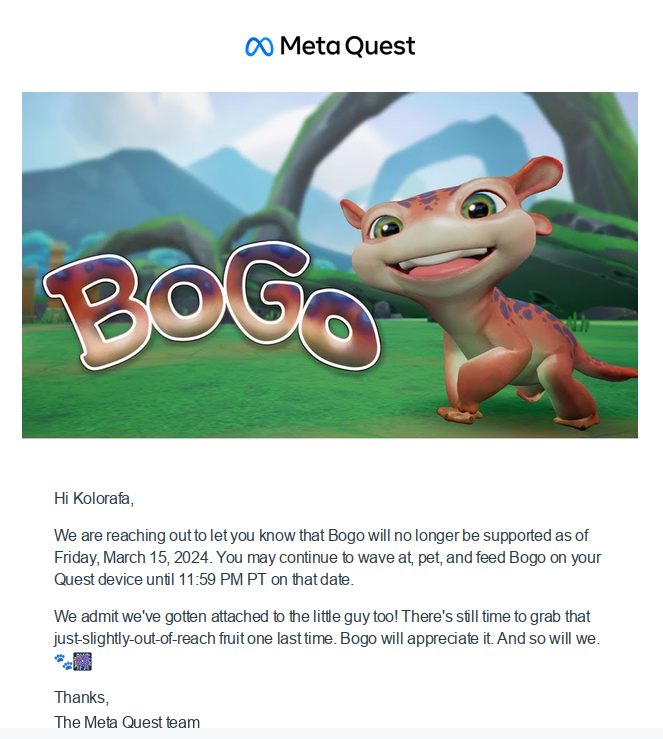This should be illegal, companies should be forced to open-source games (or at least provide the code to people who bought it) if they decide to discontinue it, so people can preserve it on their own.

This should be illegal, companies should be forced to open-source games (or at least provide the code to people who bought it) if they decide to discontinue it, so people can preserve it on their own.

That just means Youtube’s software uses lossy compression, that is a Youtube problem, not a digital media problem. Are you familiar with the concept of file hashing? A short string can be derived from a file, such that if any bit of the file is altered, it will produce a different hash. This can be used in combination with other methods to ensure perfect data consistency; for example a file torrent that remains well seeded won’t degrade, because the hash is checked by the software, so if anyone’s copy changes at all due to physical degradation of a harddrive or whatever other reason, the error will be recognized and routed around. If you don’t want to rely on other people to preserve something, there is always RAID, a 50 year old technology that also avoids data changing or being lost assuming that you maintain your hardware and replace disks as they break.
Here’s the fundamental reason you’re wrong about this: computers are capable of accounting for every bit, conclusively determining if even one of them has changed, and restoring from redundant backup. If someone wants to perfectly preserve a digital file and has the necessary resources and knowledge, they can easily do so. No offense but what you are saying is ignorant of a basic property of how computers work and what they are capable of.
It’s the most obvious example of a digital media problem. Computers might be able to account for every bit with the use of parity files and backups with frequent parity checks, but the fact is most people aren’t running a server with 4 separately powered and monitored drives as their home computer, and even the most complex system of data storage can fail or degrade eventually.
We live in a world of problems, like the YouTube problem, compression problems, encoding problems, etc. We do because we chose efficiency and ease of use over permanency.
Yes, and this can be done through mostly automatic or distributed processes.
I wouldn’t describe it as complex, just the bare minimum of what is required to actually preserve data with no loss. All physical mediums may degrade through physical processes, but redundant systems can do better.
It isn’t hard to seed a torrent. If a group of people want to preserve a file, they can do it this way, perfectly, forever, so long as there remain people willing to devote space and bandwidth.
All of these problems boil down to intent. Do people intend to preserve a file, do they not care, do they actively favor degradation? In the case of the OP game, it seems that the latter must be the case. Same with Youtube, same with all those media companies removing shows and movies entirely from all public availability, same with a lot of companies. If someone wants to preserve something, they choose the correct algorithms, simple as that. There isn’t necessarily much of a tradeoff for efficiency and ease of use in doing so, disk space is cheap, bandwidth is cheap, the technology is mature and not complicated to use. Long term physical storage can be a part of that, but it isn’t a replacement for intent or process.
I think you didn’t read correctly on the statement about the most complex system failing. I’m not saying that is the most complex system, I am saying the most complex system will fail.
LMAO at the idea of comparing every bit of every portion of every seeder’s copy with each other simultaneously and then cross referencing every parity file to be doubly safe, and then failing to see the chance of loss of parity during transmission of said files even after that. I will admit it would take a lot longer for a torrented file to degrade than some other forms of file distribution, but it’s not going to last for a thousand years, mate.
And I am saying complexity has little to do with it and also that a system can exist that will not fail.
Specifically why not? What is unrealistic about this scenario, assuming enough people care to continue with the preservation effort? All nodes must fail simultaneously for any data to be lost. The probability of any given node failing at any given time is a finite probability, independent event. The probability of N nodes failing simultaneously is P^N. That is exponential scaling. Very quickly you reach astronomically low probabilities, 1000 years is nothing and could be safely accomplished with a relatively low number of peers. Maybe there are external factors that would make that less realistic, like whether new generations will even care about preserving the data, but considering only the system itself it is entirely realistic.
Read the above conversation to find out.